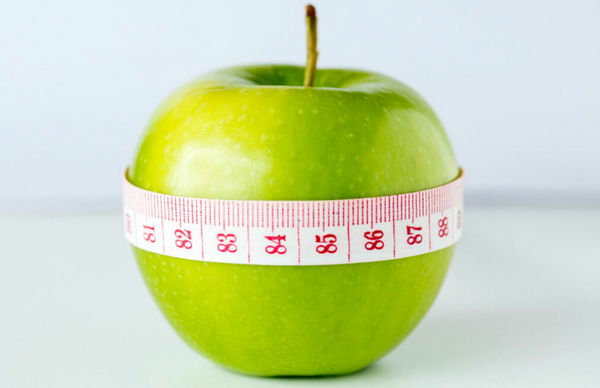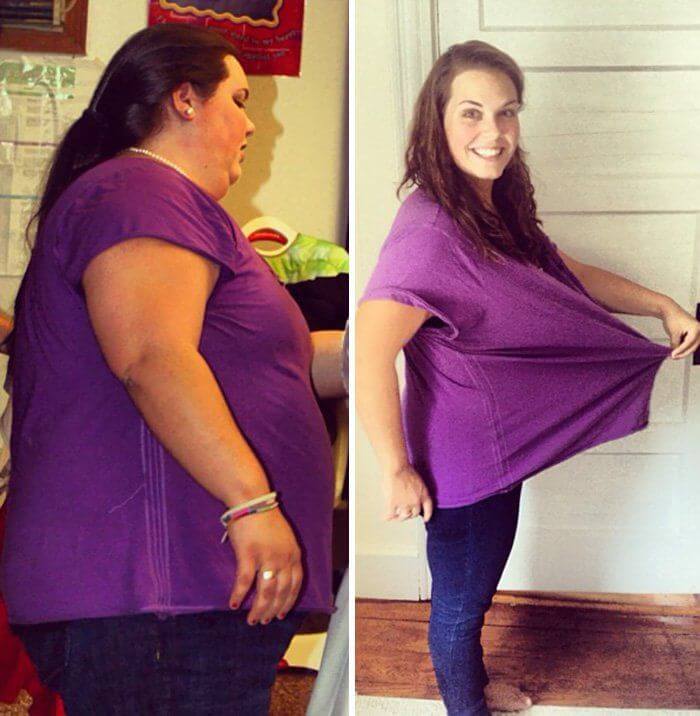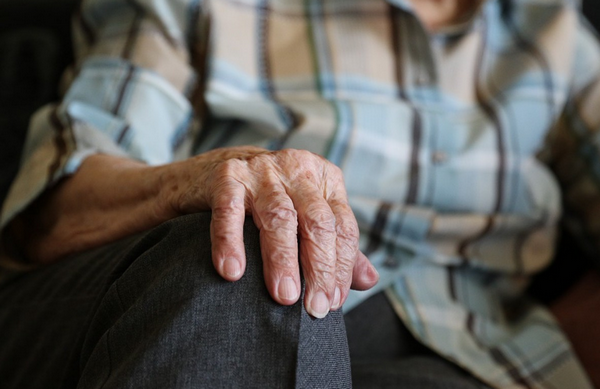
I can't lose weight while dieting. Why? There are many reasons
It turns out that you also need to have breakfast wisely, and not immediately after getting up. Regular lack of sleep also affects our weight. Well, dietary supplements, of course, let's talk about them!
"It seems like I don't eat almost anything, and life is nervous, but I can't lose weight!" the subscriber complains. This is all the more insulting that her best friend, quite prosperous and not exhausting herself with low-calorie diets, lost weight, excluding only a few products from her diet.
What is the cause of the problem? And maybe those who suffer from overweight should not torment themselves with diets and fitness, but simply resort to drugs or dietary supplements for weight loss? Let's try to figure it out.
Is it really necessary to eat even less?
No, that's not the way out.
There are a huge number of low-calorie diets that periodically come into fashion. They, however, give only temporary success, since it is harmful for the body to adhere to such a food system constantly, that is, to spend more calories than to consume. On such a diet, most of us will feel broken and tired, and after its completion, we will quickly gain those kilograms that we managed to lose.
There is another paradox associated with malnutrition. Our body is more reluctant to part with calories if it does not receive them in the system, which means that you will not have the strength for physical activity, which is necessary not only for slimness, but also for health.
And if you refuse dinner? Or do it with breakfast?

Some experts recommend having breakfast late enough, because very often we wake up not hungry, and why eat if you don't want to? At the same time, the body, which does not receive reinforcement for 18 hours (from yesterday's dinner to today's lunch), begins to burn accumulated fat and gradually lose weight.
For some people, this diet works well, providing gradual weight loss, but not for everyone.
If you skip a meal in the morning, it can lead to the fact that at noon you will be very hungry and eat an excessively plentiful lunch. If you tend to hyper-compensate for missing breakfast at lunch, it's still better for you to eat within an hour after getting up.
For breakfast, it is useful to eat something rich in protein (cottage cheese, eggs) and fiber (fruit, grain bread). A high-calorie breakfast will help you stay full for a long time and not overeat during lunch.
Since different options work for different people, it's worth trying both (postpone the first meal/have a big breakfast) and find out which is more suitable for you.
It is hardly worth reminding that overeating at night is harmful, and first of all not for the figure, but for the gastrointestinal tract. Still, it's better to have a bigger dinner than to eat popcorn or chips in front of the TV screen.
I work a lot, I don't even have enough time for a full sleep! Why am I not losing weight?
It will be difficult for you to lose weight if you don't sleep enough. By not getting enough sleep, you deprive yourself of the necessary amount of rest, which means that you have to compensate for the lack of energy by eating.
In a study by American scientists, it was found that its participants who did not get enough sleep ate an average of 300 calories a day more than those who got a full rest at night.
In addition, a person who has not had enough sleep is not up to physical activity at all, and you will not lose weight without it either.
And finally, there is the ghrelin factor. Lack of sleep increases the production of this "hungry" hormone, signaling to the brain that it's time to eat.
Why does a friend lose weight "from nerves", but I don't?

There are people who forget to eat in a situation of nervous tension, while others find comfort in food, and most often in high–calorie. Our body in a state of stress, as a rule, tends to stock up on fat just in case, so if you are nervous, you will most likely not lose weight, but get better or keep the same weight.
Does gender affect the rate of weight loss?
If you are a man, it is easier for you to lose weight relatively quickly, but women have to work on it for quite a long time. But this difference is not the only one.
Men, as a rule, lose adipose tissue in the abdominal area when losing weight, and it is in this area that it is most difficult for women to lose kilograms.
This difference is not absolute. There is such an expression – "beer belly", most often it is attributed to men. Beer is indeed a high-calorie drink, however, in order to lose weight, it is not enough for a man to simply give up beer.
The fact is that any alcohol slows down weight loss, since the liver uses it as fuel and does not burn fat, so it is better to abandon the systematic use of any alcoholic beverages.
I must have bad genes
The peculiarities of metabolism (metabolism) can be caused by genes, and, as a rule, people who are slim and muscular have a faster metabolism, burning more calories than people with a significant fat layer.
Metabolism also depends on other factors, such as age.
It slows down by 2-8% every 10 years of our life, which is why we so often observe the fact that in middle and old age, even those people who used to always be slim get better, but in order to lose weight, they have to spend much more effort than a young person.
Is it possible to speed up your metabolism?

This is possible, but within limited limits. As mentioned above, metabolism is largely determined by genes.
Drink more water (about 2 liters a day) and be physically active.
If you are a young person and you want not just to lose weight here and now, but also to work for the future, do strength exercises, for example with dumbbells. By building muscle mass, you contribute to the acceleration of metabolism in your body.
Maybe I'm just sick?
Body weight really depends on the state of health, for example, thyroid diseases. Its low activity (hypothyroidism) leads to an increase in body weight, but not due to accumulations of fat, but due to the retention of salt and fluid in the body.
Increased activity of the thyroid gland (hyperthyroidism) can affect body weight in two ways. Some people lose weight, others, on the contrary, gain weight, as this disease can increase appetite.
There are other diseases that can prevent weight loss. These are eating disorders, cardiovascular diseases, hormonal disorders and sleep disorders.
You may not be able to lose weight because you are taking medications that increase your appetite or affect the hormonal background of your body.
These can be medications for allergies, diabetes, antipsychotics and antidepressants, anticonvulsants.
Some people drink pills or dietary supplements for weight loss. Maybe I should try it too?
First and most importantly: in no case do not self-medicate, since all drugs have negative side effects!
Weight loss drugs can belong to different classes and have different mechanisms of action.
Diuretics or laxatives are widely used, which work if overweight is associated with fluid retention in the body. In no case should they be taken without a doctor's recommendation, since, firstly, self-diagnosis is hardly possible in this case, and secondly, uncontrolled use of diuretics can wash potassium and other trace elements from the body that are critical for the normal functioning of the heart.
There are drugs that reduce appetite. At the initial stage, they can be effective, but they also negatively affect the cardiovascular system.
Drugs that block the absorption of fat, along with the benefits, can also be harmful, since they prevent the absorption of some other substances, the deficiency of which will lead to various disorders, as well as problems with the gastrointestinal tract.
In some cases, for example, when it comes to advanced obesity, medications still have to be prescribed, but they need to be taken strictly following the doctor's recommendations.
But I can try dietary supplements, they won't hurt, will they?

Most likely, biologically active additives will not cause serious harm, but whether they will help is a big question.
Dietary supplements, which include many herbal (and not quite) components, are widely advertised by manufacturers, but it should be remembered that they do not undergo clinical trials, so their effectiveness is not proven.
Do you remember herbalife, which was very popular in the 90s? Buying it at an exorbitant price, people sought to lose weight quickly with its help, however, contrary to the ubiquitous network advertising, the spectrum of its impact was very wide: someone lost weight, someone remained at their previous weight, and someone got very much better.
Are all dietary supplements really useless?
There are two biologically active additives, the effectiveness and safety of which have been studied in accordance with scientific standards. First of all, it is the amino acid L-carnitine, which plays an important role in fat metabolism, which has confirmed its effectiveness in a number of studies.
The researchers note that the strongest effect of taking L-carnitine was observed in those participants whose overweight was initially very large.
The estimated daily dose of this amino acid is 2000 mg per day, it should be taken for a long time. It is a strong antioxidant and helps the body's muscles, including the heart, use the energy consumed more efficiently. At the same time, if you already have cardiovascular diseases - and indeed in any case – it is better to consult a doctor before starting taking this dietary supplement.
The main food source of L–carnitine is red meat, i.e. beef, pork, lamb. Data on its benefits / harms are very contradictory, although most medical experts today call for limiting its consumption.
The second dietary supplement that has demonstrated effectiveness in research is alpha–lipoic acid (ALA). It helps the body convert the consumed carbohydrates into energy, which means that their proportion, converted into fat, is noticeably reduced.
Experts agree that a daily dose of ALA of 600 mg is safe. Bodybuilders take 1200-3000 mg per day, but this dose should be divided into several doses. Anyway, if you are considering taking this dietary supplement, consult your doctor and make sure that you have no contraindications for this.
Food sources of ALA are spinach, potatoes boiled in the peel, and again red meat, so disliked by doctors, liver and kidneys. Since red meat is a source not only of L-carnitine and ALA, but also of B vitamins and several other critical amino acids, it is better not to completely abandon it.











